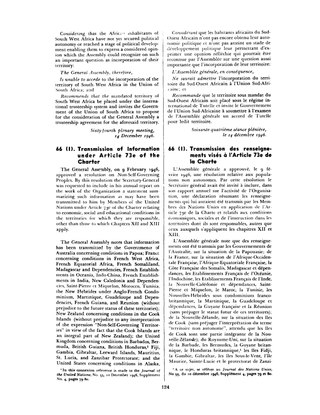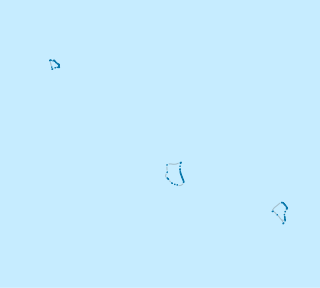
The right of a people to self-determination is a cardinal principle in modern international law, binding, as such, on the United Nations as authoritative interpretation of the Charter's norms. In human rights discourse external self determination is a people's right to form its own political entity and internal self-determination is the right to representative government with full suffrage. As a principle of international law the right of self-determination recognized in the 1960s concerns the colonial context of territories right to independence or another outcome of decolonization. The principle does not state how the decision is to be made, nor what the outcome should be, whether it be independence, federation, protection, some form of autonomy or full assimilation. The internationally recognized right of self-determination does not include a right to an independent state for every ethnic group within a former colonial territory. While there is ongoing discussion about the rights of minorities and indigenous people who are denied political participation in representative governments and consequently suffer systematic violations of human rights as a group, no right to secession is recognized under international law.

Tokelau is a dependent territory of New Zealand in the southern Pacific Ocean. It consists of three tropical coral atolls: Atafu, Nukunonu, and Fakaofo. They have a combined land area of 10 km2 (4 sq mi). In addition to these three, Swains Island, which forms part of the same archipelago, is the subject of an ongoing territorial dispute; it is currently administered by the United States as part of American Samoa. Tokelau lies north of the Samoan Islands, east of Tuvalu, south of the Phoenix Islands, southwest of the more distant Line Islands, and northwest of the Cook Islands.
An associated state is the minor partner in a formal, free relationship between a political territory and a major party—usually a larger nation.

The politics of Tokelau takes place within a framework of a parliamentary representative democratic dependency. The head of state of Tokelau is King Charles III in right of his Realm of New Zealand, who is represented by an Administrator. The monarch is hereditary, the Administrator is appointed by the New Zealand Minister of Foreign Affairs and Trade.

Chapter XI of the United Nations Charter defines a non-self-governing territory (NSGT) as a territory "whose people have not yet attained a full measure of self-government". In practice, an NSGT is a territory deemed by the United Nations General Assembly (UNGA) to be "non-self-governing". Chapter XI of the UN Charter also includes a "Declaration on Non-Self-Governing Territories" that the interests of the occupants of dependent territories are paramount and requires member states of the United Nations in control of such territories to submit annual information reports concerning the development of those territories. Since 1946, the UNGA has maintained a list of non-self governing territories under member states' control. Since its inception, dozens of territories have been removed from the list, typically when they attained independence or internal self-government, while other territories have been added as new administering countries joined the United Nations or the General Assembly reassessed the status of certain territories.

The Realm of New Zealand is the area over which the monarch of New Zealand is head of state. The realm is not a federation but is a collection of states and territories united under its monarch. New Zealand is an independent and sovereign state that has one territorial claim in Antarctica, one dependent territory (Tokelau), and two associated states. The Realm of New Zealand encompasses the three autonomous jurisdictions of New Zealand, the Cook Islands, and Niue.

A referendum on self-determination was held in Tokelau on 20 October and on 22–24 October 2007, with the result being that self-governance was rejected. Had it been successful, the referendum would have changed Tokelau's status from an unincorporated New Zealand territory to a self-governing state in free association with New Zealand, akin to the Cook Islands and Niue. However, the referendum required a two-thirds positive vote to pass, and the "yes" side fell short of the required total by 16 votes.

The Gibraltar Constitution Order 2006 was taken to a referendum in Gibraltar on 30 November 2006. A coalition of groups opposing the proposal held that a majority of 60% should be required to give effect to a new Constitution, quoting other instances, but the political parties held that the result should be decided by a simple majority in favour of the new constitution. The constitution was approved by 60% of the votes anyway.

The following outline is provided as an overview of and topical guide to Tokelau:
There are six monarchies in Oceania where supreme power resides with an individual hereditary head, who is recognised as the head of state. Each is a constitutional monarchy, wherein the sovereign inherits his or her office, usually keeps it until death or abdication, and is bound by laws and customs in the exercise of their powers. Five of these independent states share King Charles III as their respective head of state, making them part of a global grouping known as the Commonwealth realms; in addition, all monarchies of Oceania are members of the Commonwealth of Nations. The only sovereign monarchy in Oceania that does not share a monarch with another state is Tonga. Australia and New Zealand have dependencies within the region and outside it, although five non-sovereign constituent monarchs are recognized by New Zealand, Papua New Guinea and France.
The Treaty of Tokehega, officially titled the Treaty between the United States of America and New Zealand on the Delimitation of the Maritime Boundary between Tokelau and the United States of America, is a 1980 treaty between New Zealand and the United States that settles disputed claims and delineates the maritime boundary between Tokelau and American Samoa. The treaty's short name is a portmanteau of Tokelau and Olohega, which the boundary separates.
The decolonisation of Oceania occurred after World War II when nations in Oceania achieved independence by transitioning from European colonial rule to full independence.

The political status of Puerto Rico is that of an unincorporated territory of the United States officially known as the Commonwealth of Puerto Rico. As such, the island of Puerto Rico is neither a sovereign nation nor a U.S. state.

The Polynesian Leaders Group (PLG) is an international governmental cooperation group bringing together four independent countries and eight self-governing territories in Polynesia.

The United Nations Special Committee on the Situation with Regard to the Implementation of the Declaration on the Granting of Independence to Colonial Countries and Peoples, or the Special Committee on Decolonization (C-24), is a committee of the United Nations General Assembly that was established in 1961 and is exclusively devoted to the issue of decolonization.

The political status of the Cook Islands and Niue is formally defined as being states in free association within the Realm of New Zealand, which is made up of the Cook Islands, Niue, and New Zealand and its territories, Tokelau and the Ross Dependency. The Cook Islands and Niue do not have full constitutional independence from New Zealand but act as independent countries. Some countries have recognised them as sovereign entities and established diplomatic relations. However, New Zealand may carry out defence and foreign affairs on behalf of the two associated states when requested.
Lindsay Johnstone Watt is a retired New Zealand diplomat. His roles include being New Zealand ambassador to China from 1985 to 1990, and the administrator of Tokelau for 10 years from 1993.

The COVID-19 pandemic in Tokelau is part of the ongoing worldwide pandemic of coronavirus disease 2019 caused by severe acute respiratory syndrome coronavirus 2. Tokelau reported its first confirmed case on 21 December 2022. COVID-19 reached all three of Tokelau's main atolls in July 2023, when the government confirmed the community spread of the virus on Fakaofo, the last atoll without infections.











